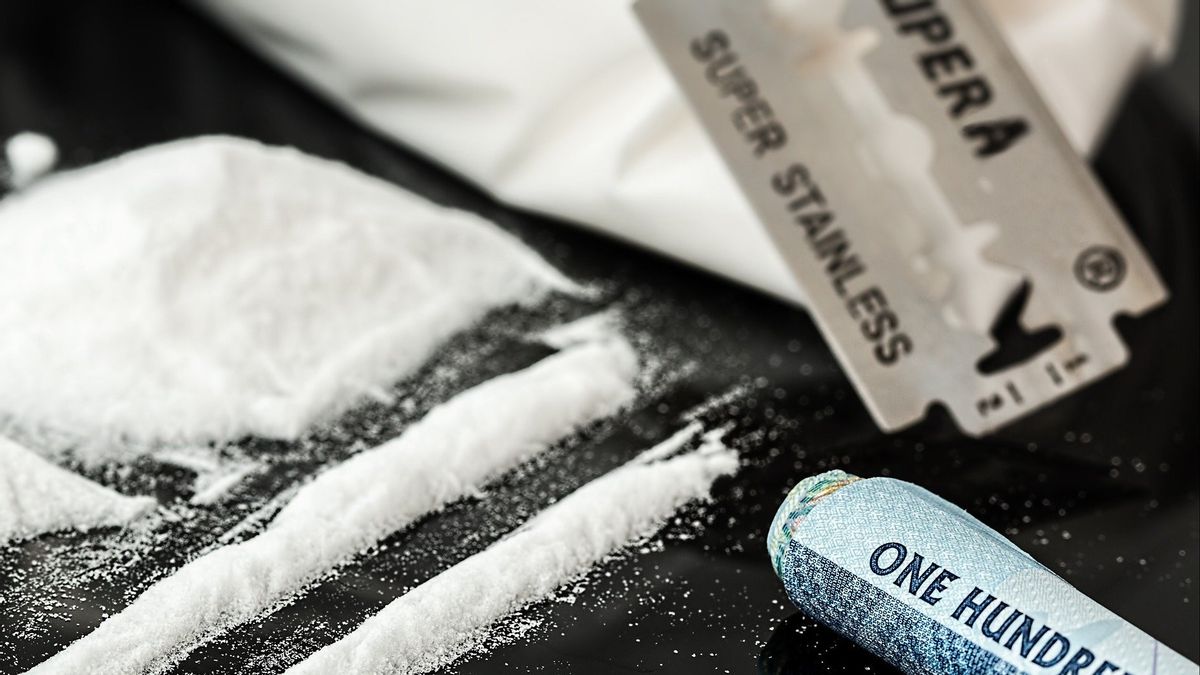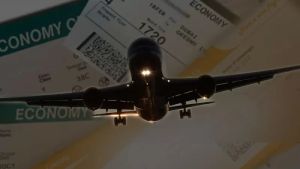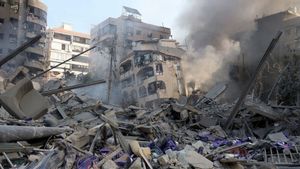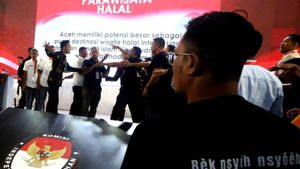JAKARTA - Hundreds of members of the South Sumatra Regional Police admit to being drug users. This was revealed after the Kapolda issued a confession letter to all members of the ranks.
Head of Public Relations of the South Sumatra Regional Police, Kombes Supriadi, said that during the five days the acknowledgment letter was issued, around 240 members of the ranks claimed to be drug users. However, they are ready to repent and undergo the rehabilitation process.
"We have received the confession notes. A total of 240 personnel have used drugs and they admit it," said Supriadi, Monday, July 6.
Based on the confession letter, the hundreds of members were scattered in several regions. Until now, the data collection process is still ongoing. As for those who admit to taking drugs is from the non-commissioned officer. Meanwhile, for officers nothing.
However, it is not known whether the hundreds of members are active users or have only used drugs. This is because in the confession letter they only admit to having been caught in a black hole in narcotics.
"These 240 personnel are actively consuming or not, until now they are still being recorded. But what is clear is that all of them have consumed (drugs) and are ready to be rehabilitated," said Supriadi.
Given the large number of members, the rehabilitation process will be carried out in stages or in four waves. Apart from rehabilitation, the hundreds of members will be nurtured morally, religiously and mentally.
"We build morally, religion and mentally at the Regional Police Headquarters. Because there are a lot of them, we will do it gradually," said Supariadi.
However, for members who do not acknowledge and are known to be involved, there will be firm action given. In fact, if later proven to be involved in narcotics trafficking or networks, they will not hesitate to dishonorably dismiss them.
"Confession is for the user, if he is involved in the circulation, the dealer, the courier will definitely be fired. The Chief of Police is not playing about drugs," concluded Supriadi.
The application of the law is considered to be lameCriminologist from the University of Indonesia, Josias Simon, said that rehabilitating hundreds of police officers who claimed to be users was in accordance with the applicable law. However, it must first be proven whether they are really just users or are actually involved in distribution.
Referring to the regulations, the rehabilitation of drug users is stated in Article 54 of Law Number 35 of 2009 concerning Narcotics. The regulation states that narcotics addicts and victims of drug abuse are required to undergo medical and social rehabilitation. Medical rehabilitation, which is related to treatment and health restoration. Meanwhile, social rehabilitation is related to social and mental recovery for drug addicts.
according to the narcotics law (rehab) it applies to everyone including the police, "said Simon.
However, Simon focused on the application of the law. According to him, the implementation of rehabilitation for civil society often deviates. The point is, even though only as a user of the criminal law process, it is immediately applied without going through rehabilitation.
"But the practice that is in question, compared to other people (only) touching it has been subject to the law," said Simon.
However, if the drug users are members of the police or certain people. It is as if the rehabilitation process is being put forward. Thus, this is considered an imbalance in the application of the rehabilitation regulations.
"There are differences in handling in practice (implementation of rehab rules)," said Simon.
In-depth examinationCommissioner of the National Police Commission (Kompolnas), Poengky Indarti, added that examinations of hundreds of members who admitted to having used drugs must be carried out. The examination must also involve Propam and the Narcotics unit.
For Propam, it will explore ethical violations because it has violated the law. Meanwhile, the examination by the drug unit is to confirm whether or not there is any involvement in the narcotics network.
"Propam is expected to be able to examine ethical and disciplinary violations. The act of consuming drugs must be entered into personnel records. Meanwhile, the investigation of Drug Res is expected to see whether they are just users. Or there is an suspicion that they are also part of a drug syndicate," said Poengky.
In addition, there must be severe penalties for the members involved or having used. Because, with the punishment will have a deterrent effect. Moreover, other members will later be afraid to try narcotics.
"I hope that the leadership will not tolerate members who are involved in drugs. With firm action, it will create a deterrent effect and the Police will become a cleaner institution," said Poengky.
The English, Chinese, Japanese, Arabic, and French versions are automatically generated by the AI. So there may still be inaccuracies in translating, please always see Indonesian as our main language. (system supported by DigitalSiber.id)












